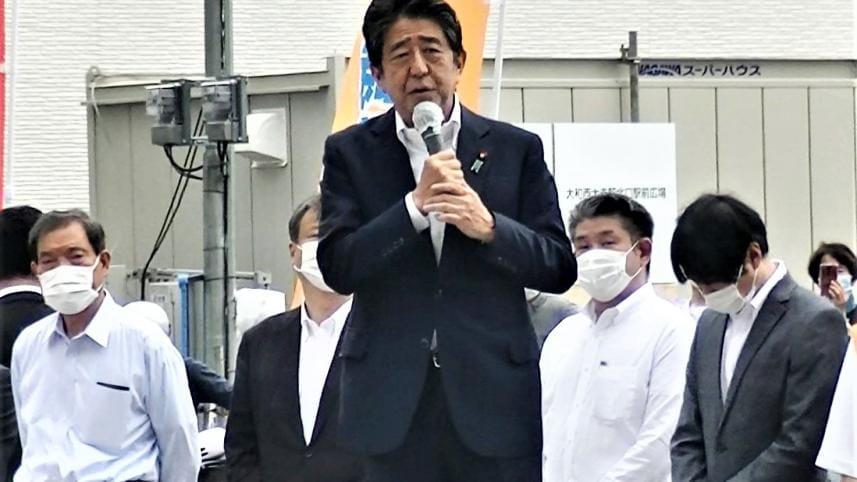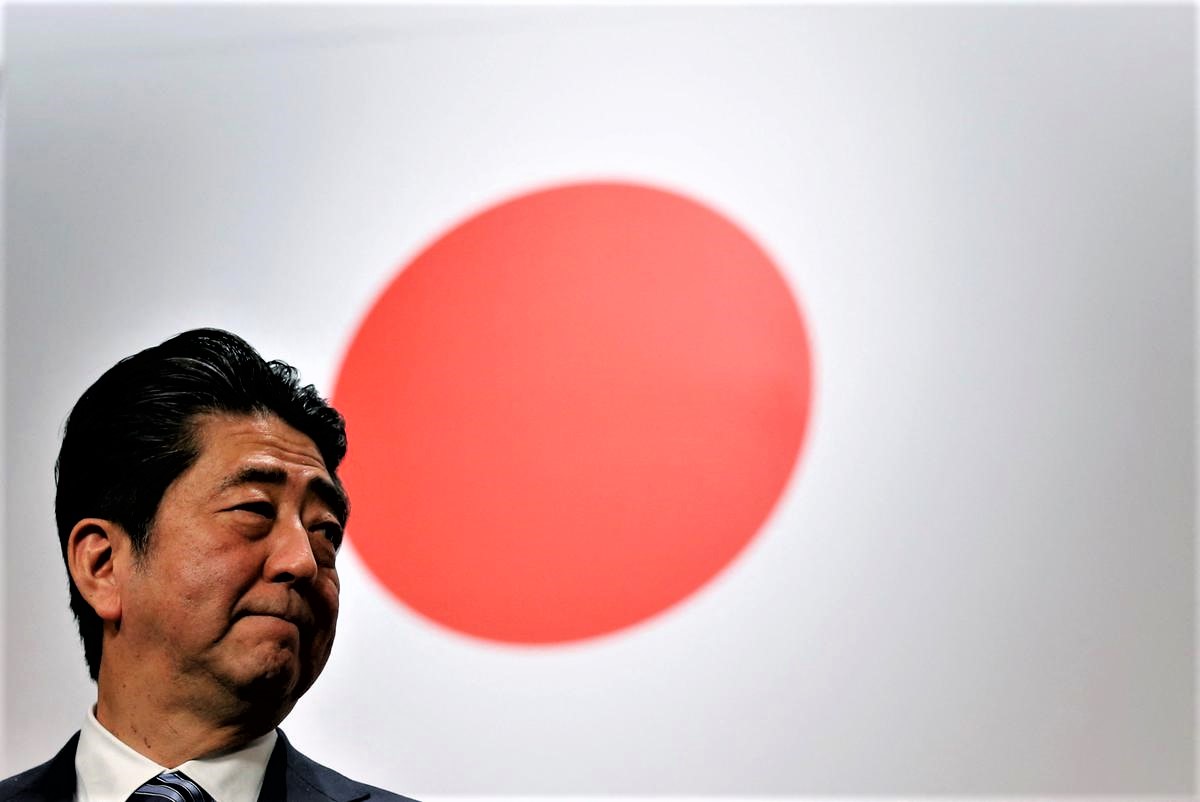Japan’s ex-PM Shinzo Abe dead after being shot

Former Japanese leader Shinzo Abe died on Friday (July 8), hours after he was shot during a rally speech in Nara prefecture in western Japan.
The death of the former prime minister was confirmed by his Liberal Democratic Party (LDP) officials to domestic media, about six hours after he was shot around 11.30am and came after doctors struggled to save him.
Earlier, current premier Fumio Kishida said Mr Abe had been in critical condition.
"Everything that can be done is being done to revive him. I am praying from the depths of my heart that his life will be saved," Mr Kishida said, struggling to hold back tears.
The prime minister condemned the "barbaric" attack, which he said was "unforgiveable" and would not be tolerated.
He said he would not speculate about the gunman's motives and whether it signalled a trend of societal unhappiness.
A man identified as Tetsuya Yamagami, 41, a Nara resident, has been arrested. Public broadcaster NHK cited Yamagami as telling police sources that he was disgruntled with Mr Abe and "wanted to kill him".
Fuji TV reported that the suspect was a former member of the maritime self-defence force, while NHK said he had served in the force for about three years until 2005.
A gun has been recovered at the scene and the suspect was arrested for attempted murder, NHK reported.
The broadcaster said police in protective gear raided the home of the man after he was arrested.
NHK footage showed several police officers wearing helmets and body armour and carrying protective shields filing into a building identified as the home of the suspect.
Japan votes in an Upper House election on Sunday, where 545 candidates are vying for 125 seats. The ruling Liberal Democratic Party (LDP) bigwigs have been fanning out across the country to campaign for the party candidates.
Speaking to reporters in his Tokyo office after he flew back from campaigning in the north upon news of Mr Abe's shooting, Mr Kishida said nothing had been decided yet about whether the election would go ahead.
"I have not thought of any change to the election timeline yet," Mr Kishida said, adding that he had told all ministers to return to Tokyo on Friday.
"We need to know what is happening now and after getting more details, we will want to discuss what we should do as a government."
Defence Minister Nobuo Kishi – Mr Abe's blood brother who was adopted into Mr Abe's maternal family when he was born – condemned the attack in the strongest terms, saying it was an "attack on democracy" and that he prayed for Mr Abe's recovery.
He added that whatever the suspect's background, the act was inexcusable.
Mr Kishi said he understands that doctors are working very hard to save his brother's life, including through blood transfusions.
NHK reported that Mr Abe's wife Akie has arrived at Nara Medical University Hospital, where Mr Abe is undergoing treatment.
Earlier, Kyodo news agency and NHK reported that Mr Abe appeared to be in a state of "cardiorespiratory arrest" when taken to hospital, after having initially been conscious and responsive, according to Reuters.
The term is often used in Japan before a feared death can be officially confirmed by a coroner.
Copyright: The Straits Times/ANN



 For all latest news, follow The Daily Star's Google News channel.
For all latest news, follow The Daily Star's Google News channel. 


Comments